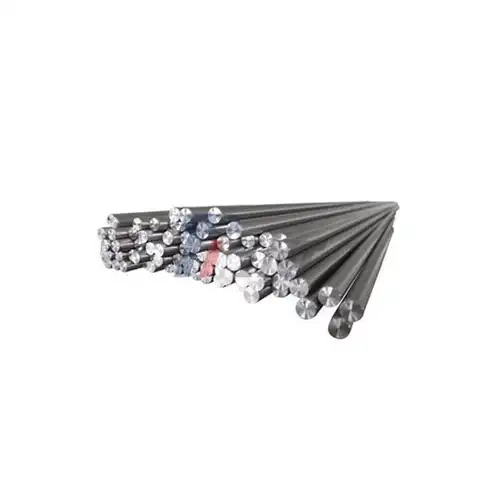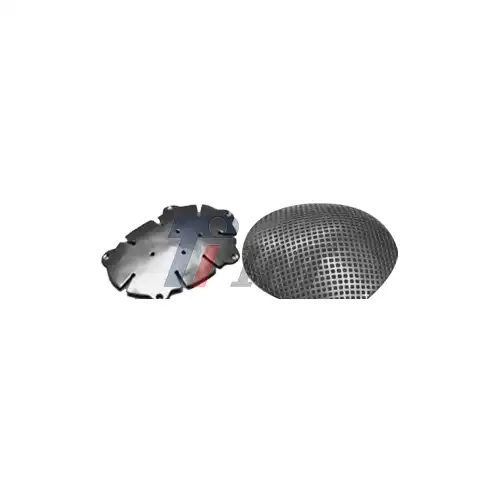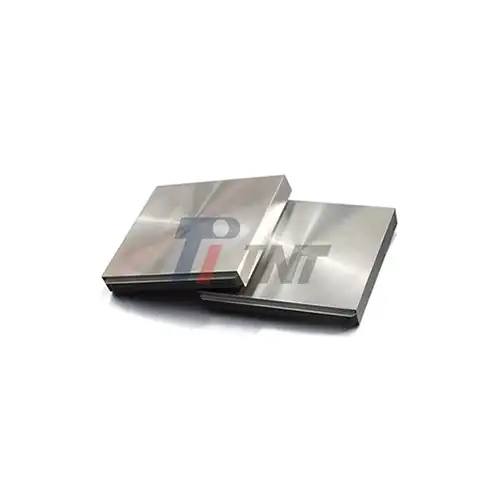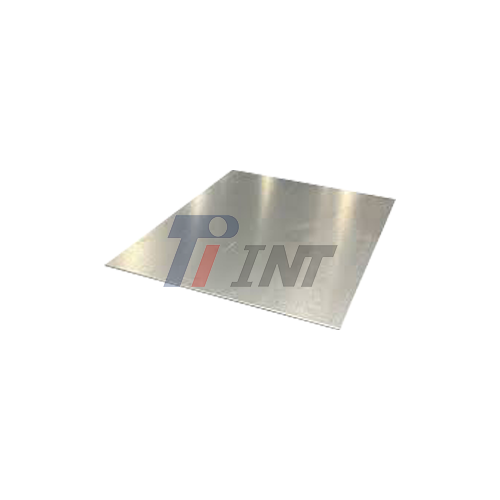The Advantages of Titanium Plates in Maxillofacial Surgery
Biocompatibility and Long-Term Safety
One of the most significant perspectives of maxillofacial surgery titanium plates is their great biocompatibility. Titanium, particularly pure titanium and Ti-6Al-4V ELI (Grade 5 and Grade 23), has proven to be remarkably safe for long-term implantation. This characteristic is vital in maxillofacial applications, where plates often remain in place for extended periods or even permanently.
The tall biocompatibility of titanium stems from its capacity to shape a steady oxide layer on its surface when uncovered to oxygen. This layer acts as a protective barrier, preventing corrosion and minimizing the risk of adverse reactions with surrounding tissues. As a result, patients experience reduced inflammation and a lower likelihood of rejection, leading to improved healing and recovery outcomes.
Lightweight Yet Durable Design
Maxillofacial surgery titanium plates boast an impressive combination of being lightweight and durable. This unique property provides surgeons with ease of use during intricate procedures while ensuring the plates maintain their strength and integrity over time. The lightweight nature of titanium plates is particularly beneficial in maxillofacial applications, where minimizing the additional weight on delicate facial structures is crucial.
Despite their light weight, these plates exhibit remarkable durability. With a tensile strength of ≥ 830 MPa, titanium plates can withstand significant forces without deforming or breaking. This durability is essential in maxillofacial surgery, where the plates must maintain their shape and function under various stresses, including chewing and facial movements.
Corrosion Resistance and Long-Lasting Performance
The corrosion-resistant properties of titanium plates are another significant advantage in maxillofacial applications. The human body presents a challenging environment for implants, with exposure to various bodily fluids and potential electrochemical reactions. Titanium's natural resistance to corrosion ensures that maxillofacial surgery titanium plates maintain their structural integrity and performance over extended periods.
This corrosion resistance not only contributes to the longevity of the implant but also minimizes the risk of metal ion release into surrounding tissues. As a result, patients benefit from reduced complications and a lower likelihood of requiring revision surgeries due to implant degradation.
Customization and Versatility in Maxillofacial Applications
Tailored Solutions for Diverse Surgical Needs
One of the most significant advantages of maxillofacial surgery titanium plates is their customizability. These plates are available in a wide range of sizes, shapes, and surface treatments, allowing surgeons to select the most appropriate option for each unique case. The ability to customize titanium plates ensures optimal fit and function, leading to improved surgical outcomes and patient satisfaction.
Customization options for maxillofacial titanium plates include:
- Thickness ranging from 0.5mm to 2mm
- Customizable width and length
- Various surface treatments, including anodized and sandblasted finishes
This versatility allows surgeons to address a wide range of maxillofacial conditions, from simple fracture repairs to complex reconstructive procedures.
Adaptability to Different Facial Structures
The high strength-to-weight ratio of titanium plates offers remarkable flexibility in surgical applications. This property allows surgeons to manipulate and contour the plates to match the unique anatomy of each patient's facial structure. The ability to precisely adapt the plates ensures a more natural fit and improved aesthetic outcomes.
Moreover, the malleability of titanium plates enables surgeons to make intraoperative adjustments as needed, without compromising the plate's strength or integrity. This adaptability is particularly valuable in complex maxillofacial procedures where precision and customization are paramount.
Long-Term Reliability and Reduced Revision Surgeries
Maxillofacial surgery titanium plates are renowned for their excellent fatigue resistance. This property is crucial in maxillofacial applications, where implants are subjected to continuous cyclic loading from everyday activities such as chewing and facial expressions. The high fatigue resistance of titanium plates ensures they maintain their structural integrity over time, significantly reducing the need for revision surgeries.
The long-term reliability of titanium plates not only improves patient outcomes but also contributes to cost-effectiveness in healthcare. By minimizing the likelihood of implant failure and subsequent revision procedures, titanium plates help reduce the overall financial burden on patients and healthcare systems.
Quality Assurance and Certification in Titanium Plate Manufacturing
Adherence to International Standards
The production of maxillofacial surgery titanium plates is subject to rigorous quality control measures and international certifications. Reputable manufacturers, such as Baoji INT Medical Titanium Co., Ltd., adhere to stringent standards to ensure the safety and efficacy of their products. These certifications include:
- ISO9001:2015 international quality system certification
- ISO13485:2016 medical device quality management system certification
- EU CE safety certification
These certifications demonstrate a commitment to maintaining the highest standards of quality and safety in the production of maxillofacial titanium plates.
Advanced Manufacturing Techniques
The production of high-quality maxillofacial surgery titanium plates involves advanced manufacturing techniques. These may include precision die forging, CNC machining, and specialized surface treatments. Such processes ensure that the plates meet the exacting specifications required for maxillofacial applications, including precise dimensions, optimal strength, and suitable surface characteristics.
Advanced manufacturing techniques also enable the production of complex plate designs, allowing for greater versatility in addressing various maxillofacial conditions. From simple straight plates to intricate three-dimensional structures, modern manufacturing capabilities have significantly expanded the range of available options for maxillofacial surgeons.
Ongoing Research and Development
The field of maxillofacial surgery titanium plates is continuously evolving, driven by ongoing research and development efforts. Manufacturers and researchers are constantly exploring new alloy compositions, surface treatments, and design innovations to further improve the performance and biocompatibility of titanium plates.
Some areas of current research include:
- Nano-surface modifications to enhance osseointegration
- Development of bioresorbable titanium alloys
- Integration of antimicrobial properties to reduce infection risks
- Optimization of plate designs for specific maxillofacial procedures
These advancements promise to further enhance the efficacy and versatility of maxillofacial surgery titanium plates in the future, potentially leading to even better patient outcomes and expanded applications in facial reconstruction and correction.
Conclusion
Maxillofacial surgery titanium plates have emerged as indispensable tools in the field of oral and maxillofacial surgery. Their unique combination of biocompatibility, strength, durability, and customizability makes them ideal for a wide range of facial skeletal applications. As manufacturing techniques continue to advance and research uncovers new possibilities, the future of maxillofacial titanium plates looks promising, with potential for even greater improvements in patient care and surgical outcomes.
For those interested in learning more about high-quality medical titanium products, including maxillofacial surgery titanium plates, Baoji INT Medical Titanium Co., Ltd. offers extensive expertise and a wide range of solutions. To explore their offerings or discuss specific requirements, interested parties can reach out to their team at export@tiint.com.



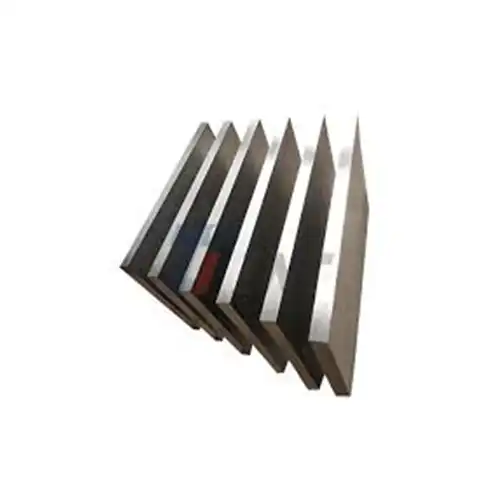






 2025-08-27 13:32:32
2025-08-27 13:32:32


_1751956094730.webp)
_1751955824855.webp)
_1755495780573.jpg)
_1755061331871.png)
